Episodes
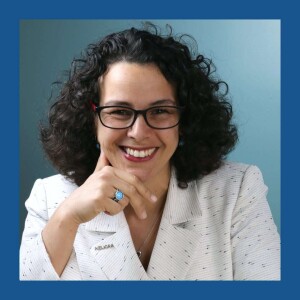
Thursday Sep 23, 2021
Thursday Sep 23, 2021
Get the Papa PhD Tool kit !
Welcome to Season 3 of the Papa PhD podcast! To start this new season, today I'm bringing you a great interview Dr. Mrim Boutla, a neuroplasticity PhD turned career coach, who was on the show in Season 2, but in French. Mrim has put a lot of thought into the conundrum that promoting career readiness is for PhD researchers and shared her reflections and some nuggets during our conversation. Stick around - I'm sure you'll enjoy her energy and her insights!
At Brown University and at the Kelley School of Business (Indiana University), Mrim successfully coached hundreds of liberal arts graduates, MPAs, MBAs, and PhDs secure jobs that maximize impact and income.As a social entrepreneur, Mrim received the 2013 AshokaU/Cordes Prize for launching More Than Money Careers in partnership with Dr. Mark Albion (Faculty Founder of Net Impact).The MTMCareers software helped over 5,000 graduates get clear, get connected, and get hired for internships and jobs that blend financial rewards and social impact and environmental stewardship. Mrim serves as a startup mentor through I-Corps, HeraHub, NETVA, and AccelerateDC. Half-Swiss and half-Moroccan, Mrim was the first in her family to go to school beyond 9th grade. She started her journey in the US as an F-1 student and became an American citizen in 2015. Mrim earned BSc/MA in Psychology from UCLouvain, in Belgium, her MA and PhD in Brain and Cognitive Sciences from the University of Rochester, and completed her neuroplasticity postdoctoral fellowship at Brown University. Beyond work, Mrim enjoys international travel and watching NBA games with her daughter.
Thank you, Mrim Boutla!
If you enjoyed this conversation with Mrim, let her know by clicking the link below and leaving her a message on Twitter:Send Mrim a thank you message on Twitter!Click here to share your key take-away from this interview with David!
This episode’s resources:
Mrim Boutla | TwitterCognaction | PodcastBook – The 10 Minute MBA | The 10 Minute MBA
You might also like the following episodes:
Amy Gentry – A Discussion About "Bad Habits" in AcademiaGertrude Nonterah – Juggling side interests, graduate school and your personal lifeKatya Park – Staying True to Your Life Plans During the PhDPaul Yachnin – Current Challenges in Higher EducationHave you checked out my course titled "PhDs and the Job Market - How to start preparing today", which is live now on the Academia.edu premium platform besides courses by Karen Kelsky, Ali Abdaal, Cathy Mazak, Damien Walter, among others?As part of an expansion of what they offer researchers through their new Premium service, Academia.edu has bet on offering them a diverse library of courses created an given by people like me – content creators from a wide range of academic and academia-adjacent spaces.All you need to do to access it is to follow the link below, register on Academia.edu if you haven't yet, and then upgrade to the premium membership.And as a bonus, if you upgrade using my affiliate link, they will be sending part of your subscription to me! So you'll be contributing to the production and improvement of the show! How cool is that?Just click on the button below and start exploring!
Access "PhDs and the Job Market - How to start preparing today" now !
And if you find value in Papa PhD and in the content I bring you every week, click on one of the buttons below and send some of that value back to me by becoming a supporter on Patreon or by buying me a coffee :)
Support the show on Patreon !
Or buy me a coffee :)
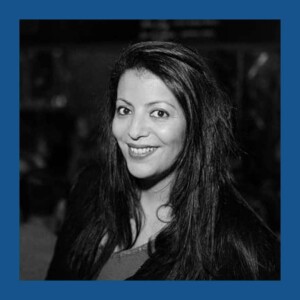
Thursday Sep 16, 2021
Thursday Sep 16, 2021
Télécharge la "Boîte à outils pour le doctorat" maintenant !
Tu aimes Papa PhD ? Laisse-moi un commentaire ici - une courte phrase suffit ! Et inclus ton identifiant Twitter – comme ça je pourrai te remercier personnellement !
Cette semaine sur Papa PhD, je t'apporte ma conversation avec Ilhame Ameqrane à propos de son expérience comme docteure en entreprise.
Durant notre conversation, on a parlé de comment mettre en valeur le doctorat dans le contexte d'un parcours professionnel atypique, des opportunités qu'offre un passage en PME après le doctorat et de la place que peuvent occuper les docteur.e.s en tant que managers au sein d'une entreprise et quelles compétences ils doivent aller chercher pour faciliter leur transition dans le milieu et dans la culture entrepreneuriale.
On a aussi parlé du MBA et des considérations qu’Ilhame a pris en compte pour choisir celui qu’elle fait en ce moment.
Après un doctorat en biologie et quelques années de post-doc, Ilhame a eu l'opportunité d'avoir une expérience dans le privé, au sein d'une PME en pleine croissance. Très vite promue à un poste de direction, elle a été amenée à travailler dans toutes les fonctions de la société : GRH, Management des Hommes, planification, Suivi/Prospection/réponse AO...
Les trois années passées dans cette entreprise lui ont permis, de façon assez contre-intuitive au départ, de mettre en pratique les compétences développées grâce au doctorat : persévérance, capacité d'analyse et d'adaptation, force de proposition, résolution de problèmes complexes, et bien d'autres !
Aujourd'hui, Ilhame formalise cette expérience au cours d'un MBA en Management et Administration des Entreprises à l'IAE de Paris, ce qui complètera un panel de connaissances qui enrichiront d'autant plus son parcours et son profil.
Les ressources de cet épisode :
Ilhame Ameqrane | LinkedIn
Merci Ilhame !
Si cet entretien avec Ilhame Ameqrane t'a plu, fais-lui en part en cliquant sur le lien ci-dessous et en lui laissant un message sur LinkedIn :
Clique ici pour la remercier sur LinkedIn !
Clique ici pour partager avec David le principal message que tu retiens de cet épisode !
Nouveauté - Sponsors
J'ai créé sur le site web une nouvelle page où je partagerai avec toi les ressources que j'utilise et que je recommande en tant que producteur et animateur de Papa PhD.
Je considère ces ressources et ces services des sponsors de Papa PhD et j'ai préparé avec eux des offres exclusives pour tous les auditeurs du podcast.
Clique sur le bouton ci-dessous et rends-leur visite!
Visite les sponsors de Papa PhD !
Tu aimeras aussi ces épisodes :
Amandine Bugnicourt – Recrutement de PhDs : PapaPhD.com/74
Anne Bonlarron – Faire le pont entre docteur.e.s et entreprises : PapaPhD.com/123
Emilie-Jade Poliquin – Déboulonner les mythes de l'emploi après de doctorat : PapaPhD.com/116
Marie Itoiz – S'outiller pour l'après-doctorat : PapaPhD.com/108
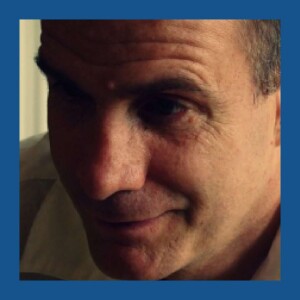
Thursday Sep 09, 2021
Thursday Sep 09, 2021
Get the Papa PhD Tool kit !
This week on Papa PhD, I have the pleasure of bringing you my conversation with Greg Kelly, Executive producer of IDEAS, on CBC Radio.During our conversation, Greg shares a very colourful recount of his experience in Oxford as a literature PhD student and talks about his post-PhD career choices and journey.Greg is a great storyteller, so I think you’ll really enjoy this one!
Greg Kelly took his doctorate in literature at Oxford University.His work at CBC Radio and Television, as well as the United States and Europe, and won international awards and acclaim in both media.During our conversation, Greg shared his experience going through a humanities PhD in Oxford, UK, and contrasted the culture with the North-American system.We then talked about the day-to-day of being a graduate student in the Oxford collegiate system and about how important community is within the otherwise very solitary endeavor that is the PhD.Throughout our conversations, Greg shared a handful of illustrative stories, and in the last part of the interview, he recounted the moment when he realized the academic career was not his path and what led to his current position at Executive Producer of CBC Radio IDEAS.
Thank you, Greg Kelly!
If you enjoyed this conversation with Greg, let me know by clicking the link below and leaving me a message on Twitter:Click here to share your key take-away from this interview with David!
This episode’s resources:
CBC Radio IDEAS | TwitterCBC Radio IDEAS | Podcast
You might also like the following episodes:
Amy Gentry – A Discussion About "Bad Habits" in AcademiaChris Humphrey – Rebranding the PhDKatya Park – Staying True to Your Life Plans During the PhDPaul Yachnin – Current Challenges in Higher EducationHave you checked out my course titled "PhDs and the Job Market - How to start preparing today", which is live now on the Academia.edu premium platform besides courses by Karen Kelsky, Ali Abdaal, Cathy Mazak, Damien Walter, among others?As part of an expansion of what they offer researchers through their new Premium service, Academia.edu has bet on offering them a diverse library of courses created an given by people like me – content creators from a wide range of academic and academia-adjacent spaces.All you need to do to access it is to follow the link below, register on Academia.edu if you haven't yet, and then upgrade to the premium membership.And as a bonus, if you upgrade using my affiliate link, they will be sending part of your subscription to me! So you'll be contributing to the production and improvement of the show! How cool is that?Just click on the button below and start exploring!
Access "PhDs and the Job Market - How to start preparing today" now !
And if you find value in Papa PhD and in the content I bring you every week, click on one of the buttons below and send some of that value back to me by becoming a supporter on Patreon or by buying me a coffee :)
Support the show on Patreon !
Or buy me a coffee :)
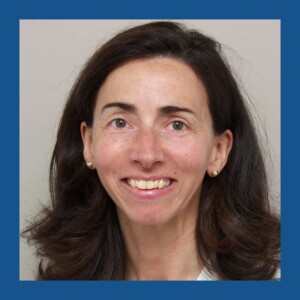
Thursday Sep 02, 2021
Thursday Sep 02, 2021
Tu aimes Papa PhD ? Laisse-moi un commentaire ici - une courte phrase suffit ! Et inclus ton identifiant Twitter – comme ça je pourrai te remercier personnellement !
Cette semaine sur Papa PhD, je t'apporte ma conversation avec Anne Bonlarron, fondatrice de Scienceo.
Durant notre conversation, on a parlé de son expérience comme doctorante CIFRE expatriée à Budapest, de l'évènement qui l'a menée à arrêter sa thèse, de ses réflexions à propos de la santé mentale au doctorat, et de ce qui l'a menée où elle est aujourd'hui, à la croisée des chemins entre la recherche et les entreprises.
Ce que tu apprendras dans cet épisode :
Comment se passe la négociation des modalités de fonctionnement d'une convention CIFRE
Les particularités (et les avantages) d'un doctorat CIFRE à l'étranger
Changer de pays, une chance de se réinventer
L'importance d'avoir une communauté, quand on est expatrié
Pourquoi il faut trouver les bonnes personnes pour nous accompagner dans nos défis de vie et de santé mentale
Comment le réseautage, même à l'uinversité, mène à des opportunités d'emploi
La vision d'Anne de la place cruciale que joueront les docteur.e.s. dans l'innovation à venir dans le milieu entrepreneurial
Anne Bonlarron a 25 ans d'expérience au croisement de la recherche et de l'entreprise et une connaissance très fine de ce que ces deux mondes s'apportent.
Elle a créé Scienceo il y a 4 ans. Scienceo accompagne les cadres et dirigeants dans la définition de leur stratégie et le développement de leurs compétences au travers de learning expeditions, groupes de travail, évènements sur-mesure, qui croisent expertises de chercheurs, expériences d’entreprises, partage de bonnes pratiques, travail collaboratif, découverte de lieux innovants.
Les ressources de cet épisode :
Anne Bonlarron | LinkedIn
Scienceo.fr | Site Web
Merci Anne !
Si cet entretien avec Anne Bonlarron t'a plu, fais-lui en part en cliquant sur le lien ci-dessous et en lui laissant un message sur LinkedIn :
Clique ici pour la remercier sur LinkedIn !
Clique ici pour partager avec David le principal message que tu retiens de cet épisode !
Nouveauté - Sponsors
J'ai créé sur le site web une nouvelle page où je partagerai avec toi les ressources que j'utilise et que je recommande en tant que producteur et animateur de Papa PhD.
Je considère ces ressources et ces services des sponsors de Papa PhD et j'ai préparé avec eux des offres exclusives pour tous les auditeurs du podcast.
Clique sur le bouton ci-dessous et rends-leur visite!
Visite les sponsors de Papa PhD !
Tu aimeras aussi ces épisodes :
Amandine Bugnicourt – Recrutement de PhDs : PapaPhD.com/74
Emilie L. Dubois – Marier science, art et entrepreneuriat : PapaPhD.com/121
Emilie-Jade Poliquin – Déboulonner les mythes de l'emploi après de doctorat : PapaPhD.com/116
Marie Itoiz – S'outiller pour l'après-doctorat : PapaPhD.com/108
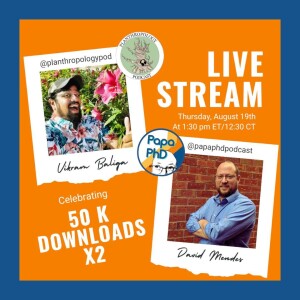
Thursday Aug 26, 2021
Thursday Aug 26, 2021
This week on Papa PhD, I'm joined by Vikram Baliga in sharing with you a celebration of a great milestone for Papa PhD and for his podcast – the Planthropology podcast.Having both started podcasting in 2019, we just reached 50.000 downloads at a few days of interval, and we decided to thank you, the listeners, by recording a special episode!I hope you enjoy getting to know Vikram and I a little better and that you share Papa PhD and Planthropology with two friends, to get us started on our way to 100.000 !
Thank you, Vikram Baliga!
If you enjoyed this conversation with Vikram, let him know by clicking the link below and leaving him a message on Twitter:Click here to thank Vikram Baliga on Twitter!Click here to share your key take-away from this interview with David!
This episode’s resources:
Vikram Baliga | LinkedInPlanthropology podcast | TwitterPlanthropology podcast | InstagramPlanthropology podcast | Website
You might also like the following episodes:
Amy Gentry – A Discussion About "Bad Habits" in AcademiaKatie Wedemeyer-Strombel – Reshaping Your Career Through Change and UncertaintyKatya Park – Staying True to Your Life Plans During the PhDKerri Twigg – Retelling Your PhD Career Story Have you checked out my course titled "PhDs and the Job Market - How to start preparing today", which is live now on the Academia.edu premium platform besides courses by Karen Kelsky, Ali Abdaal, Cathy Mazak, Damien Walter, among others?As part of an expansion of what they offer researchers through their new Premium service, Academia.edu has bet on offering them a diverse library of courses created an given by people like me – content creators from a wide range of academic and academia-adjacent spaces.All you need to do to access it is to follow the link below, register on Academia.edu if you haven't yet, and then upgrade to the premium membership.And as a bonus, if you upgrade using my affiliate link, they will be sending part of your subscription to me! So you'll be contributing to the production and improvement of the show! How cool is that?Just click on the button below and start exploring!
Access "PhDs and the Job Market - How to start preparing today" now !
And if you find value in Papa PhD and in the content I bring you every week, click on one of the buttons below and send some of that value back to me by becoming a supporter on Patreon or by buying me a coffee :)
Support the show on Patreon !
Or buy me a coffee :)
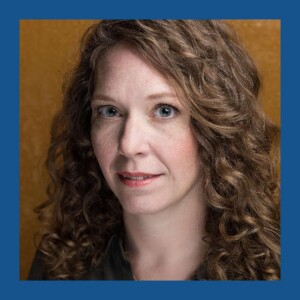
Thursday Aug 19, 2021
Thursday Aug 19, 2021
This week on Papa PhD, I'm discussing a fictional book – a thriller set within academia – with author Amy Gentry.In our conversation, I talked with Amy about her personal experience going through a PhD in the humanities and about what aspects of that experience inspired her to write “Bad Habits”.
Amy Gentry is the author of Good as Gone, a New York Times Notable Book, and Last Woman Standing. She is also a book reviewer and essayist whose work has appeared in numerous outlets, including the Chicago Tribune, Salon, the Paris Review, the Los Angeles Review of Books, and the Austin Chronicle.She holds a PhD in English from the University of Chicago and lives in Austin, Texas.
Thank you, Amy Gentry!
If you enjoyed this interview with Amy, let her know by clicking the link below and leaving her a message on Twitter:Click here to thank Amy Gentry on Twitter!Click here to share your key take-away from this interview with David!
This episode’s resources:
Amy Gentry | LinkedInAmy Gentry | TwitterAmy Gentry | WebsiteAmy Gentry - Bad Habits | Book
You might also like the following episodes:
Katie Wedemeyer-Strombel – Reshaping Your Career Through Change and UncertaintyKatya Park – Staying True to Your Life Plans During the PhDKerri Twigg – Retelling Your PhD Career StoryMonica Granados – A Vision of Graduate School For the 21st CenturyHave you checked out my course titled "PhDs and the Job Market - How to start preparing today", which is live now on the Academia.edu premium platform besides courses by Karen Kelsky, Ali Abdaal, Cathy Mazak, Damien Walter, among others?As part of an expansion of what they offer researchers through their new Premium service, Academia.edu has bet on offering them a diverse library of courses created an given by people like me – content creators from a wide range of academic and academia-adjacent spaces.All you need to do to access it is to follow the link below, register on Academia.edu if you haven't yet, and then upgrade to the premium membership.And as a bonus, if you upgrade using my affiliate link, they will be sending part of your subscription to me! So you'll be contributing to the production and improvement of the show! How cool is that?Just click on the button below and start exploring!
Access "PhDs and the Job Market - How to start preparing today" now !
And if you find value in Papa PhD and in the content I bring you every week, click on one of the buttons below and send some of that value back to me by becoming a supporter on Patreon or by buying me a coffee :)
Support the show on Patreon !
Or buy me a coffee :)
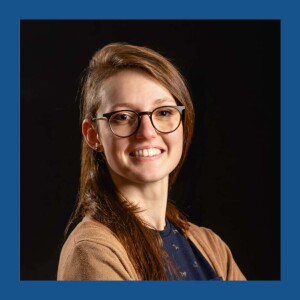
Thursday Aug 12, 2021
Thursday Aug 12, 2021
Tu aimes Papa PhD ? Laisse-moi un commentaire ici - une courte phrase suffit ! Et inclus ton identifiant Twitter – comme ça je pourrai te remercier personnellement !Est-ce qu'on peut se créer un métier en dehors de la recherche, mais sans s'éloigner de la science? Mon invitée de cette semaine - Emilie L. Dubois - s'est posé cette question et y a trouvé sa réponse dans le domaine du design graphique et de la communication scientifique, après avoir complété son doctorat dans le domaine des sciences de la vie. Dans cette entrevue, on a parlé de son trajet professionnel, mais aussi de ses réflexions à propos de son passage au doctorat.
Ce que tu apprendras dans cet épisode :
Comment Emilie a maintenu son amour de l'art tout au long de son parcours universitaireL'interface qu'Emilie a trouvé entre le design graphique et la représentation de données, pendant son doctoratLes défis auxquels fait face la communication scientifique aujourd'huiLes ressources auxquelles Emilie a eu recours pour se former en communication scientifqueComment s'améliorer et s'inspirer en observant ce qui nous entoureLa stimulation intellectuelle existe bel et bien en dehors de la rechercheLa différence entre entrepreneuriat et intrapreneuriatPourquoi docteur·es et startups font bon ménage
Emilie a obtenu un doctorat en Biologie Cellulaire et Moléculaire à l'Université Laval en 2018. Elle s'est formée en graphisme, en communication et en entrepreneuriat pour se tourner vers la communication scientifique visuelle, et fonder lagence IMPAKT Scientifik.Aujourd'hui entourée d'une belle équipe, sa mission est d'accompagner les scientifiques et les entrepreneurs technologiques à faire rayonner leurs projets, grâce à des visuels percutants et une communication de qualité. Ensemble, ils développent des formations pour améliorer la communication scientifique de chacun et la maîtrise d'outils numériques.En parallèle, elle est impliquée comme mentor pour les étudiants (CBS, Canadian Biomaterials Society), accompagne occasionnellement des entrepreneurs en devenir, et fait partie du Comité d'Éthique de la Recherche du CÉGEP Garneau.
Les ressources de cet épisode :
Emilie L. Dubois | LinkedInEmilie L. Dubois | TwitterImpakt Scientifik | Site WebComment et où se former en communication scientifique ? | Article
Merci Emilie !
Si cet entretien avec Emilie L. Dubois t'a plu, fais-lui en part en cliquant sur le lien ci-dessous et en lui laissant un message sur LinkedIn :Clique ici pour la remercier sur LinkedIn !Clique ici pour partager avec David le principal message que tu retiens de cet épisode !
Nouveauté - Sponsors
J'ai créé sur le site web une nouvelle page où je partagerai avec toi les ressources que j'utilise et que je recommande en tant que producteur et animateur de Papa PhD.Je considère ces ressources et ces services des sponsors de Papa PhD et j'ai préparé avec eux des offres exclusives pour tous les auditeurs du podcast.Clique sur le bouton ci-dessous et rends-leur visite!
Visite les sponsors de Papa PhD !
Tu aimeras aussi ces épisodes :
Alexandra Martel – Être persuasif dans notre recherche d'emploi : PapaPhD.com/102Amandine Bugnicourt – Recrutement de PhDs : PapaPhD.com/74Emilie-Jade Poliquin – Déboulonner les mythes de l'emploi après de doctorat : PapaPhD.com/116Marie Itoiz – S'outiller pour l'après-doctorat : PapaPhD.com/108
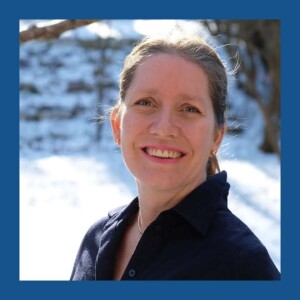
Thursday Aug 05, 2021
Thursday Aug 05, 2021
Hi! This week, I have the great pleasure of bringing you a conversation about life balance in graduate school with Katya Park. During the interview, Katya shared how during her PhD and postdoc she made sure to stay true to her life plans, namely those related to building a family, while working towards her goals, scientifically, and about how she dealt with the pressures and fears young researchers who want to start a family still experience, today.
Katya did her PhD in molecular neuroscience at the University of Toronto, she defended when she was 7 months pregnant with her third son.
Her post-doc was in molecular mechanisms involved in traumatic brain injury, and then she was the director of the Neurovascular Research team at a private health clinic.
Wanting to get a broader picture of how things work, Katya left the lab and worked at the Ministry of Health.
She currently manages a team of researchers and evaluators at the Ministry for Seniors and Accessibility. She misses science though and the conversations involved, so she and her husband (also a neuroscientist) have started their own scientific consulting company.
Thank you, Katya Park!
If you enjoyed this interview with Katya, let her know by clicking the link below and leaving her a message on LinkedIn:
Click here to thank Katya Park on LinkedIn!
Click here to share your key take-away from this interview with David!
This episode’s resources:
Katya Park | LinkedIn
Katya Park | Website
Today, I also have something very exciting to share.
A couple of months ago, I was approached by Academia.edu to produce an online course for their new premium platform, and I accepted the challenge.
And today, I can announce that my course titled "PhDs and the Job Market - How to start preparing today" is now live on the platform, besides courses by Karen Kelsky, Ali Abdaal, Cathy Mazak, Damien Walter, among others!
As part of an expansion of what they offer researchers through their new Premium service, Academia.edu has bet on offering them a diverse library of courses created an given by people like me – content creators from a wide range of academic and academia-adjacent spaces.
I've been wanting to offer you a condensed course based on my conversations on the podcast for a while, so I'm really thrilled to share the course with you, today.
All you need to do to access it is to follow the link below, register on Academia.edu if you haven't yet, and then upgrade to the premium membership.
And as a bonus, if you upgrade using my affiliate link, they will be sending part of your subscription to me! So you'll be contributing to the production and improvement of the show! How cool is that?
Just click on the button below and start exploring!
Access "PhDs and the Job Market - How to start preparing today" now !
You might also like the following episodes:
Katie Wedemeyer-Strombel – Reshaping Your Career Through Change and Uncertainty
Harinder Singh – Promoting Career Success in STEM
Parag Mahanti – Networking and Job Hunting as a PhD
Megan Kirk Chang – Bringing Down Stress
Support the show on Patreon !
Or buy me a coffee :)
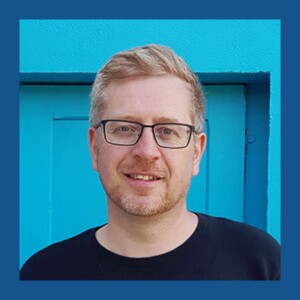
Thursday Jul 29, 2021
Thursday Jul 29, 2021
Télécharge la "Boîte à outils pour le doctorat" maintenant !
Salut! Cette semaine sur Papa PhD, je t'apporte une conversation au long de laquelle, avec mon invité, Pierre-Henri Garnier, on a parlé psychologie, transdisciplinarité et doctorat, et à la fin de laquelle il a partagé un exercice de réalité virtuelle (sans casque) qui t'aidera à maîtriser ton stress en identifiant où dans ton corps tu le ressens le plus. Bonne écoute!
Ce que tu apprendras dans cet épisode :
Un exercice d'autohypnose pour t'aider lorsque tu éprouves de l'anxiété ou du stress
L'intérêt du doctorat en tant que psychologue
L'ambivalence qu'on peut ressentir vers la fin de la thèse
L'importance de se sentir soutenu par ses pairs et par son directeur de thèse
Ce qu'est la cyberpsychologie
Ce qu'est que l'approche transnumériste en psychologie
Ce que le passage au doctorat apporte à Pierre-Henri dans son activité libérale
Comment les Doctoriales ont ouvert les horizons de Pierre-Henri à l'interdisciplinarité et à la transdisciplinarité
Tu aimes Papa PhD ? Laisse-moi un commentaire ici - une courte phrase suffit ! Et inclus ton identifiant Twitter – comme ça je pourrai te remercier personnellement !
Pierre-Henri Garnier est psychologue en libéral au centre interdisciplinaire de thérapie intégrative à Rezé près de Nantes. Il développe notamment une pratique en cyber thérapie utilisant l'hypnose associée à la réalité virtuelle. Il est également docteur en Sciences de l'information et communication. Grace à l'obtention d'une bourse ministérielle, Il a effectué son doctorat sous la direction du professeur Jean-Pierre Courtial, au sein de la maison des Sciences de l'homme à Nantes.
Après son doctorat, Pierre-Henri a notamment exercé une dizaine d'années en tant que psychologue au chu de Nantes, en diabétologie pédiatrique puis en soin de support et soin palliatifs.
Aujourd'hui il exerce en libéral et ses compétences de docteur structure sa pratique. Elles lui permettent d'être chercheur associé au sein du centre fédératif douleur soin de support et soin palliatifs du chu de Nantes.
En lien avec sa pratique de clinicien, il est également enseignant et formateur dans le domaine de la communication et éducation thérapeutique, en hypnose thérapeutique. Il développe notamment avec son ancien directeur de thèse une approche dite transnumériste dans le champ des psychothérapies et nouvelles technologies, la réalité virtuelle plus particulièrement.
Un docteur psychologue clinicien transdisciplinaire, transnumériste et passionné de la transe créative et hypnotique.
Merci Pierre-Henri !
Si cet entretien avec Pierre-Henri Garnier t'a plu, fais-lui en part en cliquant sur le lien ci-dessous et en lui laissant un message sur LinkedIn :
Clique ici pour le remercier sur LinkedIn !
Clique ici pour partager avec David le principal message que tu retiens de cet épisode !
Les perles de sagesse de Pierre-Henri :
« De mon point de vue de psychologue, il y a tout un travail à faire auprès des étudiants de repérage de ce qui sonne juste pour eux, mais au niveau corporel – pas dans la tête. Sauf que parfois, en tant que doctorant, on est un peu dissocié, on dirait en hypnose. On est plus dans la tête que dans le corps, donc ça peut être vire piégeant d'écouter davantage sa pensée et son intellect que son corps. Et donc, je rejois tout à fait ton message de prévention – chers auditeurs, écoutez votre intuition, ce que vous ressentez et généralement, ça vous guide, en fait. »
« Le stress est utile, donc il faut plutôt le filtrer et dialoguer avec lui, et trouver la juste distance entre ce qui est négatif de ce stress-là. On exorcise le côté négatif et on endorcise le côté ressource, sécurisant, positif. Mais l'astuce, c'est vraiment d'être dans le corps, dans la sensation, dans l'exception du corps qui ressent la sécurité. »
Les ressources de cet épisode :
Pierre-Henri Garnier | LinkedIn
Pierre-Henri-Garnier | Facebook
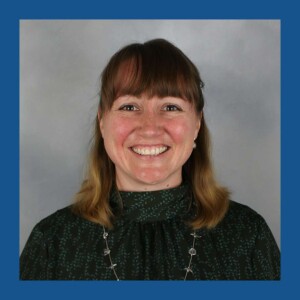
Thursday Jul 22, 2021
Thursday Jul 22, 2021
Hi! Before introducing today's guest, and to celebrate two years of Papa PhD, I'd like to extend an invitation directly to you.If you have a question about one of the episodes of Papa PhD, or if you'd like me to connect you with the people you hear on the podcast, or if you'd like to contribute in any way to Papa PhD, with suggestions or even content, email me at david@papaphd.com.I'll be happy to reply and, eventually, discuss your ideas with you. I'm currently thinking about Season 3, and it's time to brainstorm, so don't hesitate!Now - talking about things changing, In this week's episode, my guest – Katie Wedemeyer-Strombel – talks about all that has changed for her in these last two years professionally, and about how she dealt with the sudden change and uncertainty the COVID pandemic brought onto the industry she works in and onto her career journey.
What you’ll learn about in this episode:
What led Katie to do her PhDWhy you shouldn't accept emotional abuse in graduate schoolHow she dealt with switching labs during her PhD, looking for a better learning environmentThe importance of having a support network and of looking for help if graduate school is affecting your mental healthHow having academic mentors outside the lab can help you navigate difficult timesHow Katie's resourcefulness and will to help helped her navigate to a new position within her company, during the pandemic
Thank you, Katie Wedemeyer-Strombel!
If you enjoyed this interview with Katie, let her know by clicking the link below and leaving her a message on Twitter:Click here to thank Katie Wedemeyer-Strombel on Twitter!Click here to share your key take-away from this interview with David!
Support the show on Patreon !
Or buy me a coffee :)
Katie's pearls of wisdom:
“I had a lot of grief and resentment towards my PhD, and I've most recently just even gotten over it, now. It's taken therapy and a lot of self-reflection, and a lot of realizing that I did learn really valuable skills that just in academia aren't highlighted as much. Right? I have published papers, I have grants to my name... People where I work now don't care. But I'm really resourceful. If you need something figured out, I know how to do the research, to figure out what the best way to do it is. You need me to jump in somewhere. I mean, I did a lot of field work in remote locations where I had no Internet access, very little contact with my mentors or anyone outside of where I was located. So I had to McGyver or a lot of stuff. All these different skills, writing, editing, research, networking, collaboration, thinking on your feet. Those are all skills that you've learned, that you kind of underplay in academia, because it doesn't necessarily... you know, it's not your research record.”“One of the things that was tough for me to do, that I wish I would have started doing in grad school was putting together a portfolio of syllabi I had created, any guest lectures, any outreach lectures that I had done, maybe to K12 or up to undergrad classes. At a lot of places, at least in what I do, they want a portfolio – "What content have you created? - Well, I've published papers" – that's not what they want.”“Because I always liked teaching, I did seek out extra teaching opportunities and curriculum development opportunities as a PhD – that all counts as professional experience. I was in charge of developing a curriculum, four courses, as a PhD student. On my CV or on my resume, I can write: I have curriculum development experience and I've been doing it for the last five years. Was my job title learning experience designer, like it is now? No, but that's exactly what I was doing in that role. So many of the other tasks that we do have resume line items that are a big deal, and really valuable in the corporate world.”Katie Wedemeyer-Strombel loves to spend time outdoors with her husband and dog and believes t...
